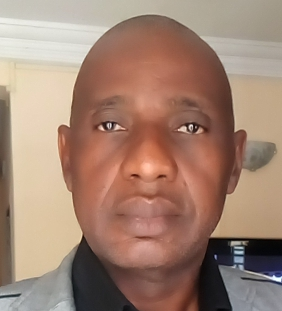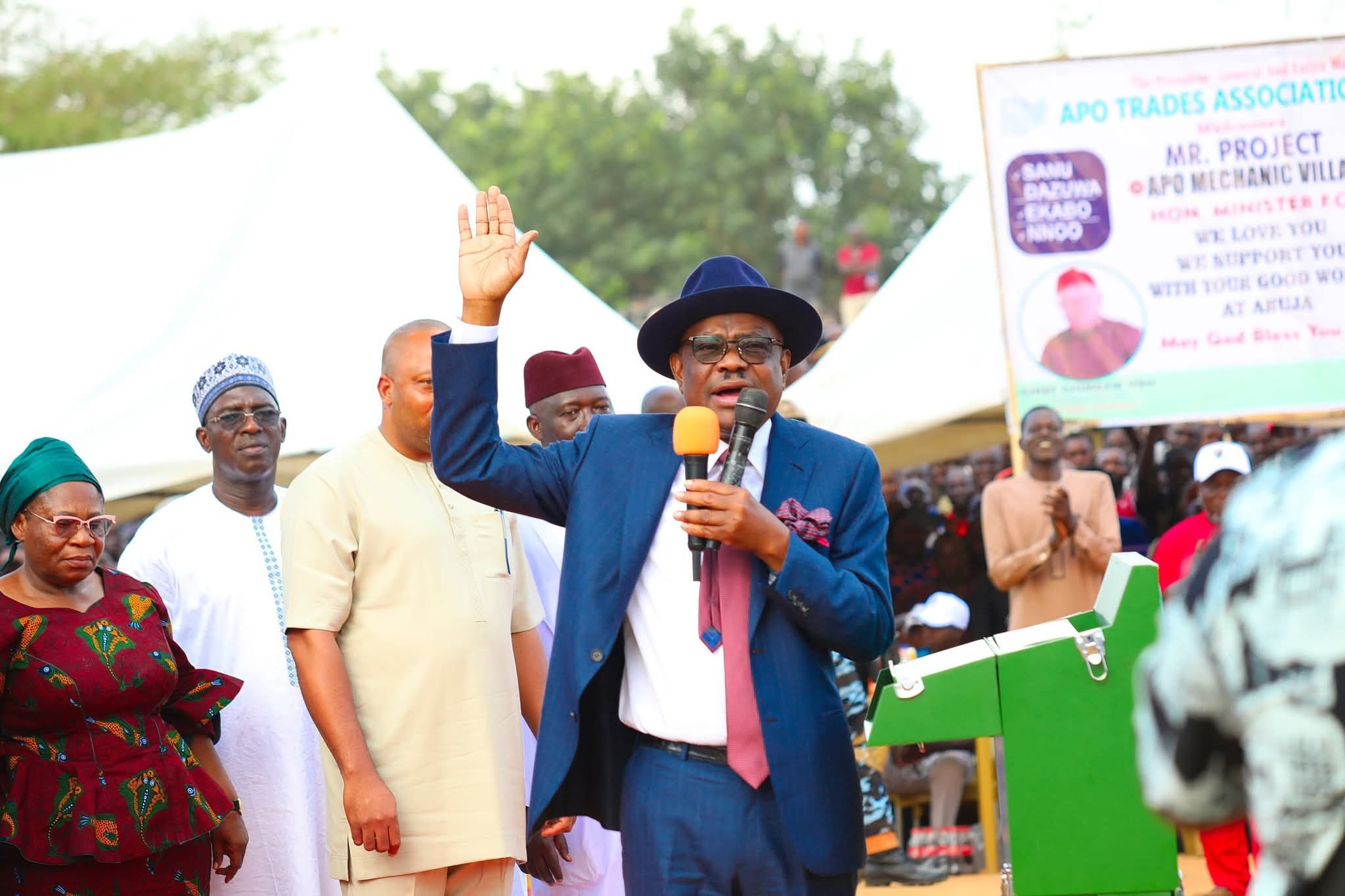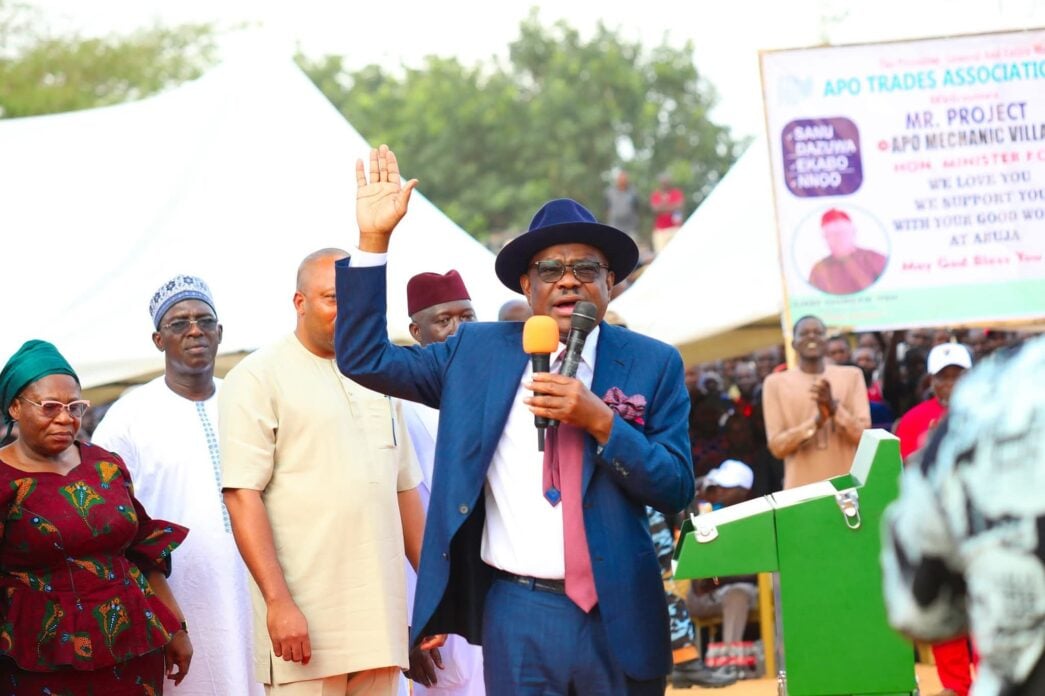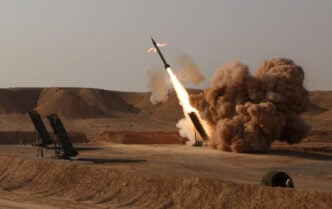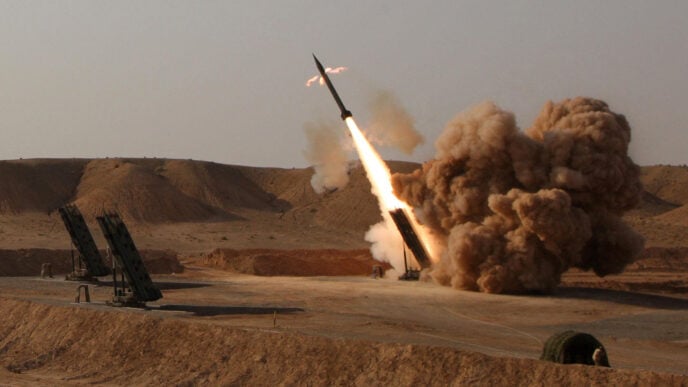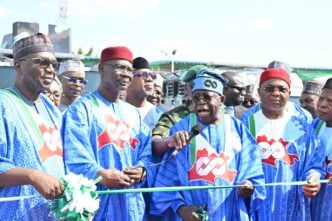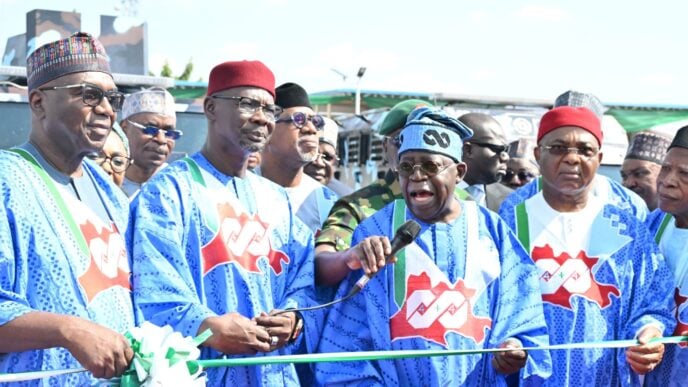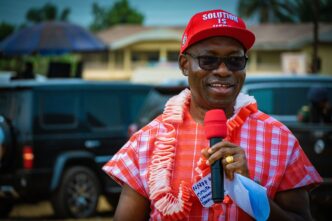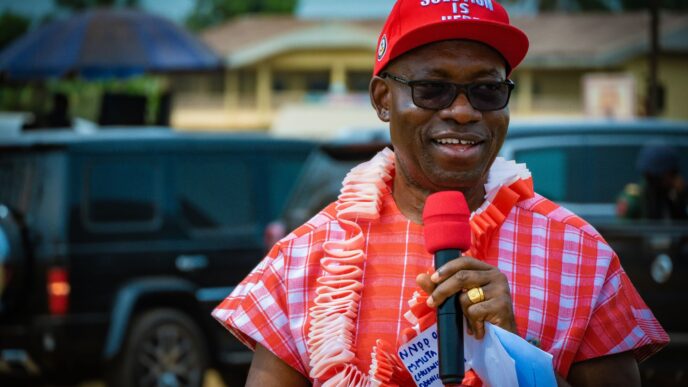Wike is the reason Rivers State is in crisis today. Despite leaving office, he still wanted to be in charge of politics and governance in the state. He was out to control the governor and the state treasury, and also to determine who got what in contracts and appointments. He nominated virtually all the appointees of the governor, including the commissioners and advisers, even the governor’s chief of staff.
Above all, he pocketed the legislature and the judiciary in such a way that Siminalayi Fubara would merely be a front to actualise Nyesom Wike’s third-term governorship ambition. But because Fubara resisted him, Rivers State is boiling today.
These are some of the sweeping statements that have trailed the democratic stalemate in Rivers State.
Whether they are true or false is a function of one’s affiliation and interest because there are equally vehement and seemingly superior arguments against those narratives. Indeed, there are!
Advertisement
But to fairly assess the current situation in Rivers State, two conditions must be fulfilled! Firstly, it should be recognised that the major obstacles to Nigeria’s democratic development include selective amnesia or prejudice, shortage of vigilant followership and selfless leadership, low-level commitment to patriotism and nationalism, abundance of strong individuals against strong institutions and absence of morality in politics.
These are the consequences of the long years of military incursion in Nigeria’s politics and governance, which cumulatively account for Nigeria’s stunted development in all aspects of her national life. They are being propagated by a weak Constitution, and until they are deliberately tackled, Nigeria will continue to witness motion without movement.
Secondly, there should be a conscious acceptance that politics is about battles for power and status. Like a typical business, it involves investments by way of money, materials and men. It entails building and nurturing structures of loyal individuals.
Advertisement
As such, politics comes with high expectations for returns on those huge investments, and of course, a shrewd politician cannot help but satisfy that inherent urge to perpetually remain relevant and influential. It is the overall meanness and/or desperation to attain and sustain this powerful status that constitutes the “battle” and also portrays politics as a “dirty game”.
Now, fast-forward to Wike and Rivers State.
Except for ignorance or mischief, nobody can deny that if Wike wishes to have a stable, peaceful and united Rivers State today, he will achieve it within the twinkling of an eye. Certainly, with minimal effort, Wike can turn around the fortunes of Rivers State overnight. Even at the risk of incurring felony charges, one is confident that Wike can put Rivers State back on the path of quick recovery and prosperity, faster and more effectively than the ongoing presidential interventions. Hate him or love him, you cannot take this away from him!
But wait: is Wike now more powerful than the institutions of governance? To this sincere question, the honest answer is a resounding NO!
Advertisement
Wike is not stronger than the state. He has no history of such disposition in the same manner that he is not reputed for circumventing the laws. He is just who he says he is. He does not pretend about his interests. He is not known to be a friendly enemy or a fake friend. Rather than mix politics with governance, he uses politics to drive governance and also, rather than fight the institution, he uses the institution to fight.
Wike is both a transactional and a transformational leader. His word remains his bond, and for every deal, he places his cards on the table. Typical of an astute politician, he wants to always be in charge and or have his way. He does not pretend about it but ‘generously’ works for it. He understands the imperatives of loyalty, which he freely gives and desperately demands depending on the occasion.
Furthermore, Wike is unquestionably bold, audacious, brave and courageous. To the initiates, these qualities are as profound as they are legendary.
Yet, some people choose to judge him otherwise.
Advertisement
As an instance and in this context, blaming Wike subjectively for the political impasse in Rivers State is tantamount to denying the reality.
Wike is one easily predictable man, thus implying that whoever chooses to fall out with him has made a deliberate choice or has wilfully refused to learn from history.
Advertisement
Whereas morality and politics are inseparable, and also, because politics is about the quest for influence, recognition and relevance, Wike is justifiably protecting his political investments over the years. This is not about emotions or sentiments but politics, purely!
Although it may be argued that he went to the extreme in that battle for the soul of Rivers State, was it not that same measure of ‘extremism’ that produced the political structure that was in contention? Oh yes, he went to the ‘extreme’ to deliver the government that succeeded him. He was roundly applauded then.
Advertisement
Besides, if it is true that “all is fair in war and love” as they say, then one should use what they have to get what they need, provided that morality is not sacrificed at the altar of political expediency.
So, the crisis in Rivers State is a sequel to a mismanaged issue between Wike and Fubara by some opportunists. Mazi S.G. Ikoku of the blessed memory succinctly explained it when he wrote that “in politics, you can make a proposition and then, when it starts working out, you may see something different…. (and also)… unfortunately, we have reached a stage where the mercenary component in our politics is much higher than the visionary component”.
Advertisement
Therefore, Wike, like all mortals, is not perfect, but stakeholders should recognise that he is as critical as he is strategic to the permanent resolution of the stalemate in Rivers State. Both sides should look back to see where they are coming from and sincerely identify the point of departure.
Instructively, Wike can be predicted but cannot be taken for granted! He keeps his eyes on the ball, rewards loyalty and believes in evidence.
Now, a cursory look at Wike as the minister of the Federal Capital Territory.
Ordinarily, it is the height of absurdity to clap for a leader or a government that does what they are elected to do, but our recent past has vindicated the practice. Our history is replete with regimes that wilfully exploited the relative apathy or ignorance of the governed and short-changed the people, diverting public wealth to private pockets. Contracts were used as conduits to siphon funds, resulting in a high level of infrastructural and social decay.
In the case of the FCT, the population surge in the city centre due to the absence of functional infrastructure in the hinterlands created viable opportunities for an alarming increase in crime and criminality, among other communicable diseases and socio-economic hazards.
This summarises the pitiable state of the FCT before Wike’s coming as the minister.
Now, and barely two years in the saddle, what can you say about the FCT today?
Abuja is progressively becoming a megacity. The general mood is that Abuja never had it so good!
The green areas are speedily returning. The menace of one-chance crime is fizzling out. Travel times have been substantially reduced as a result of numerous road projects across the length and breadth of the federal capital territory. The imminent population implosion within the city centre is receding following the sustainable revival of the rural economies, which in turn encourages urban-rural migration. Every agency of government under the Federal Capital Territory Administration, FCTA, is now actively alive to its responsibilities. Every property owner, irrespective of status, can now pay ground rent, and there is now an unprecedented commitment to upholding the rule of law in the government and governance of the federal capital territory.
All these are the results of an integrated infrastructural and social development strategy aimed at radically transforming the landscape, connecting the satellite towns and restoring the original Abuja Master Plan.
Similarly, Wike has justified the collaboration in governance between the legislature and the executive by his diligent implementation of the various budgets seamlessly scrutinised and passed so far by the national assembly. He has demonstrated that Abuja could have been better than he met it had a passion for development prevailed.
For the record, Wike is largely not expanding or rebuilding the existing, but he is engendering massive infrastructural development from scratch.
He has proven that Abuja is indeed the Centre of Unity where region and religion cannot deny one access to good governance and service delivery.
Once again, Wike has his shortcomings as a mortal, but he is exceptionally consistent and deploys profound passion and energy in committing to whatever cause he believes in. He is a man of conviction who jealously guards his agenda, but not to the extent of undermining the public interest. His political affiliation does not cloud his sense of judgment on issues of national interest. He would rather go against partisan considerations in advancing matters of the greater public good.
Though the rest is now history, Wike championed the return of the presidency to the southern part of the country and brazenly went all out against his party on it during the 2023 general elections. Also, despite having served as a minister under a different political party for about two years now, Wike has yet to switch platforms. How else do you describe a firm character?
Therefore, it is a vain effort to judge Wike based on prejudice or the opinions of others.
Egbo is a parliamentary affairs analyst.
Views expressed by contributors are strictly personal and not of TheCable.
